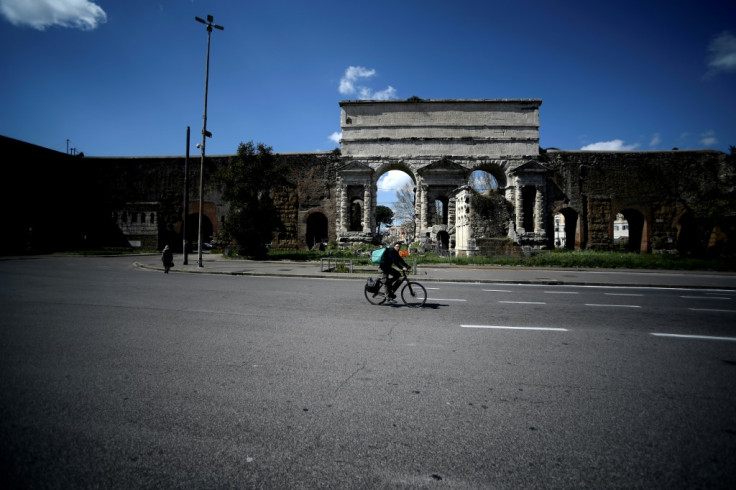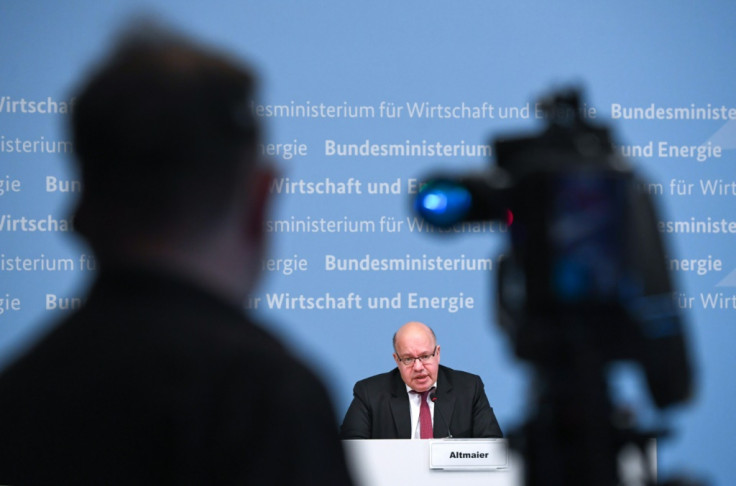EU finance ministers split on coronavirus rescue plan
The COVID-19 outbreak has brought the European economy to it knees and Italy, with the backing of France and Spain, wants a massive response from EU partners.
EU finance ministers argued over crisis measures to help European countries withstand the economic shock of the coronavirus outbreak Tuesday, with powerful Germany cautious about rewriting the rulebook.
The COVID-19 outbreak has brought the European economy to it knees and Italy, with the backing of France and Spain, wants a massive response from EU partners in a historic act of financial solidarity.
"We will have to start working on a Marshall Plan as soon as possible," Spain's Economy Minister Nadia Calvino said, referring to US-backed reconstruction of western Europe after World War II.
"A plan so that once the health crisis has been solved, Europe... can ensure that the economy recovers as robustly as possible, as soon as possible," she said before a video-conference with her EU colleagues.
But northern countries, led by Berlin and the Hague, are not in a hurry and believe a huge stimulus announced by the European Central Bank, backed by national spending, is adequate for now.

Our aim is to add new lines of defence to the euro, preventing this economic crisis to morph into a financial one," said Eurogroup chief Mario Centeno, whose task it will be to find a consensus.
"My aim is to report solutions to a leaders summit this Thursday, not curtailing any possible way forward," added Centeno, who is also Portuguese finance minister.
At the heart of the split are deep doubts among the northern and wealthier European nations about the financial discipline of their southern partners, especially since the dark days of the eurozone debt crisis.
Countries like France, Spain and Italy have long called for a eurobond, that is in effect joint borrowing by the 19 members of the euro single currency, that could serve as the bedrock of a safer and more unified European economy.

Italy, backed by France, recently renewed the call by asking for EU-wide "corona bonds", but ahead of Tuesday's talks Germany angrily dismissed the idea as the return of the politically poisonous "eurobond" under another name.
"I can only recommend that we don't hold a mock debate for ideological reasons, in which everyone digs out their preferred solution from five or ten years ago," German Economy Minister Peter Altmaier said in Berlin.
"It's not about a fundamental change of strategy for ideological reasons, that would be wrong at this time and we won't go along with it," he added.
Given the acrimony, ministers will instead work towards agreeing on a more surgical approach that would tap into the eurozone's massive bailout war chest to help countries in need, especially Italy.
Controlled by the 19 finance ministers from the euro single currency bloc, the European Stability Mechanism (ESM) has over 400 billion euros in firepower and could raise more.
Based in Luxembourg, it was created in the depths of the debt crisis and has the primary purpose of rescuing countries that are shut out of the markets -- which is not the case now.
But the ESM can also offer loan guarantees for countries that ask for it, though Italy, already under a pile of debt, is reluctant to do so, afraid of signalling to the markets it has money problems.
ESM programmes also come with demands to enact painful reforms, which Italy is reluctant to accept when what it actually wants is an act of friendship in a desperate moment.
If ministers agree to make ESM funds available, they will propose it to EU leaders who would take up the matter at a videoconference on Thursday.
A eurozone source said credit lines would likely be agreed in he end, but even that would be difficult.
"I don't think we can agree today if you look at the mood between member states," he added.
Copyright AFP. All rights reserved.
This article is copyrighted by International Business Times, the business news leader





















